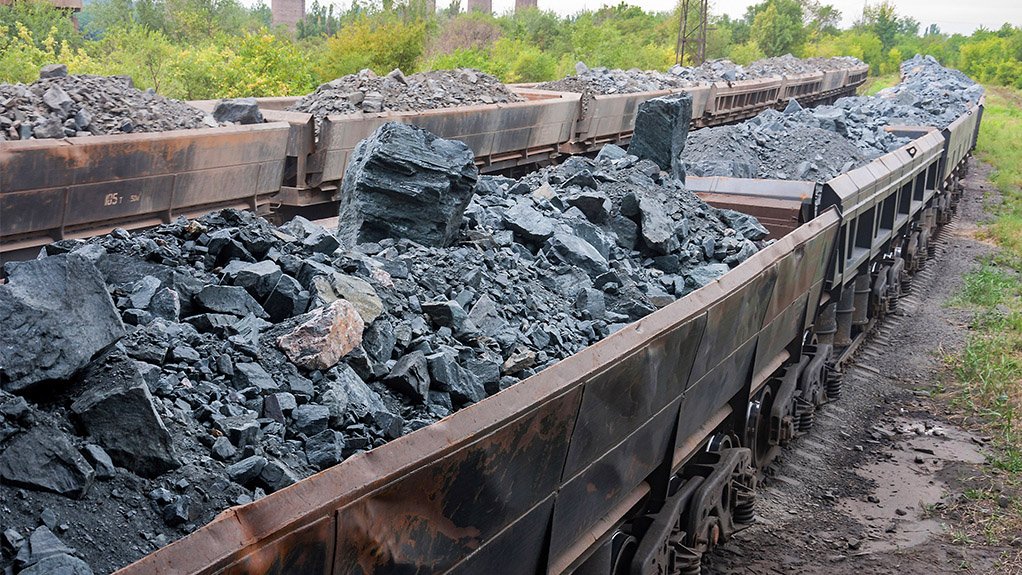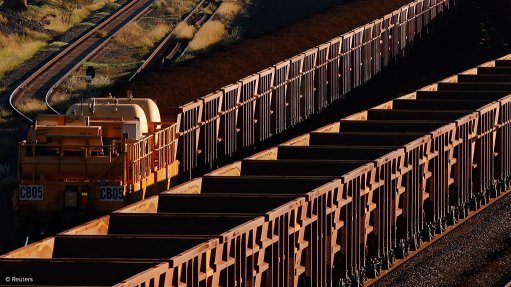Chinese steel industry could jeopardise project


DROP IN THE OCEAN Covid-19 has had a small impact on the iron-ore market, with South Africa experiencing some disruption
The Chinese steel industry is close to peaking, as it is expected to exceed one-billion tons in 2020; consequently, analysts predict that iron-ore consumption in China will plateau and decline, owing to the abundance of scrap in the country.
Commodities consultancy Roskill steel alloys principal consultant Erik Sardain says this scenario has adverse consequences for iron-ore demand. For example, Rio Tinto’s Simandou joint venture (JV) project, in Guinea, could have been completed ten years ago because “it would have made sense at the time, as the Chinese steel industry was expanding dramatically”.
He is sceptical about the future of the Simandou project, as the Chinese steel industry is expected to use more scrap, consequently resulting in a decoupling of pig iron and steel production alongside the plateauing of iron-ore consumption.
“Developing Simandou today is questionable. Steel production in China is expected to peak by the middle of next decade. This factor, combined with an increased scrap availability, will accelerate the decoupling between steel and pig iron production. As a result, iron ore demand will also level off.”
“The development of Simandou is challenging and very costly, especially in terms of logistics. A Simandou development is probably too late. By the time the mine is operational, demand will have plateaued. On top of this, there are cheaper alternatives, such as brownfield expansions in Western Australia and in Brazil,” he says.
He adds that Simandou is a large deposit requiring a large capital expenditure. It has tricky geology through mountains and rivers, requiring the construction of a long railway track. Additionally, a deep-water port would need to be built.
Sardain says the question for Rio Tinto and its partners is whether it is really economical to continue with the project at a time when it seems as if demand is going to plateau, when there are less capital-intensive opportunities available.
He notes that Rio Tinto and other majors, such as BHP and Vale, can expand production sufficiently at much lower cost.
Amid the September resignations of former Rio Tinto CEO Jean-Sébastien Jacques and Rio Tinto iron-ore head Chris Salisbury, the major could possibly reprioritise assets and projects, in line with the new policies and/or values of the new management team, Sardain suggests.
He notes that the Covid-19 pandemic has probably had zero impact on the development of the project, which is targeting completion in 2025.
“I think the decision to go ahead with Simandou is a political decision, as China would probably like to reduce its reliance on Australian iron-ore exports.”
He says that there is “no doubt” that the development of Simandou would be beneficial for Guinea, as it “is in the eastern part of Guinea. The development of the railway line that links it to the western part will allow for further development within the c ountry”.
However, developing a 650 km railway line that primarily transports iron-ore may be prohibitively expensive, especially because of the terrain.
Sardain is also unsure as to whether people fully understand the potential ecological effects of the project, as it is about 60 km away from the Ziama forest, which was designated a nature reserve in 1932 and approved as a Biosphere Reserve by the United Nations Educational, Scientific and Cultural Organisation in 1980.
This may become a contentious issue for the company because investors tend to be more wary of operations that could have damaging ecological impacts, which has been highlighted by the recent destruction of the Juukan Gorge Aboriginal site in Western Australia.
“I believe the time for Simandou has passed. But I may be wrong.”
Pandemic Effects
“Covid-19 has had a very small impact, in real terms, on the iron-ore market. But there has been a significant impact in terms of market sentiment.”
Sardain says Western Australia – where a significant portion of global iron-ore supply is mined – is very isolated and, as such, there has been little to no disruption to production in that region.
“There has been some disruption in South Africa. We have seen that with the production at Kumba Iron Ore, but again, we are taking about a 10% decline, which is not really significant; globally, the market was concerned about a more severe cut in production from Brazil.”
He explains that the high prevalence of Covid-19 cases in parts of Brazil resulted in concern that supply from Vale could be downgraded again and this, combined with massive consumption from China, initially resulted in concerns about a potential supply deficit.
“We know that BHP and Rio have not significantly increased supply while Vale’s production is still impacted on by last year’s Brumadinho dam accident. There has been some additional production impact from Covid-19, although limited in scale.”
Vale has been increasing its production, especially in the north of Brazil, where there have not been as many Covid-19 cases.
Comments
Press Office
Announcements
What's On
Subscribe to improve your user experience...
Option 1 (equivalent of R125 a month):
Receive a weekly copy of Creamer Media's Engineering News & Mining Weekly magazine
(print copy for those in South Africa and e-magazine for those outside of South Africa)
Receive daily email newsletters
Access to full search results
Access archive of magazine back copies
Access to Projects in Progress
Access to ONE Research Report of your choice in PDF format
Option 2 (equivalent of R375 a month):
All benefits from Option 1
PLUS
Access to Creamer Media's Research Channel Africa for ALL Research Reports, in PDF format, on various industrial and mining sectors
including Electricity; Water; Energy Transition; Hydrogen; Roads, Rail and Ports; Coal; Gold; Platinum; Battery Metals; etc.
Already a subscriber?
Forgotten your password?
Receive weekly copy of Creamer Media's Engineering News & Mining Weekly magazine (print copy for those in South Africa and e-magazine for those outside of South Africa)
➕
Recieve daily email newsletters
➕
Access to full search results
➕
Access archive of magazine back copies
➕
Access to Projects in Progress
➕
Access to ONE Research Report of your choice in PDF format
RESEARCH CHANNEL AFRICA
R4500 (equivalent of R375 a month)
SUBSCRIBEAll benefits from Option 1
➕
Access to Creamer Media's Research Channel Africa for ALL Research Reports on various industrial and mining sectors, in PDF format, including on:
Electricity
➕
Water
➕
Energy Transition
➕
Hydrogen
➕
Roads, Rail and Ports
➕
Coal
➕
Gold
➕
Platinum
➕
Battery Metals
➕
etc.
Receive all benefits from Option 1 or Option 2 delivered to numerous people at your company
➕
Multiple User names and Passwords for simultaneous log-ins
➕
Intranet integration access to all in your organisation



















